Pjotr Sauer
Russia will cut off gas supplies to the Netherlands on Tuesday, the Dutch-backed trader GasTerra said on Monday after the company refused to pay supplier Gazprom in roubles, in the latest escalation of the energy payments row with the west.
Gazprom Export has demanded that European countries pay for Russian gas supplies in roubles because of sanctions imposed over Moscow’s invasion of Ukraine. Gazprom had already cut off gas to Finland, Poland and Bulgaria after they refused to comply with the new payment terms.
GasTerra, which buys and trades gas on behalf of the Dutch government, said in a statement that it had “anticipated” Russia’s moves to cut off gas and has bought “elsewhere” some of the 2 billion cubic metres of gas it had expected to receive from Gazprom through October.
Around 44% of Dutch energy usage is based on gas, but only about 15% of Dutch gas comes from Russia, according to government figures. The Dutch government earlier announced the country’s plans to stop using Russian fossil fuels by the end of the year.
European nations are divided over how to respond to Moscow’s demand that all payments for the gas should be made in the local currency. Germany and Italy have reportedly told their companies they could open rouble accounts to keep buying Russian gas without breaching sanctions.
Frédéric Leclerc-Imhoff, the French journalist who was killed when the armoured evacuation vehicle he was travelling in was hit by shrapnel from a Russian shell in the city of Sievierodonetsk, was “cheerful, enthusiastic, caring, courageous and a wonderful journalist”, his colleagues said.
Leclerc-Imhoff was 32 and on his second mission to Ukraine since the Russian invasion began on 24 February, according to news channel BFMTV, for which he worked for six years.
“He cared a lot and I am proud of the choices he made,” his mother said.
As Russian forces turn their focus on Donbas, Bakhmut, a city of 72,000 in Donetsk oblast, is getting heavily shelled.
Talking with a few exhausted soldiers in Bakhmut, just back from the frontlines. “We don’t have any new weapons here, new forces, nothing,” says one of them. Another, who fought in 2014: “I’m expected to fight a tank with my Kalashnikov. We’re just cannon fodder. We’re fucked.”
— Neil Hauer (@NeilPHauer) May 30, 2022
The Russian command has engaged all its forces and is attempting to encircle Ukrainian troops in Donetsk and Luhansk regions – 🇺🇦 Defense Ministry.
The most difficult situation is now observed in the Severodonetsk, Bakhmut and Kurakhov directions.
— Iuliia Mendel (@IuliiaMendel) May 30, 2022
Here are some images from Bakhmut today:
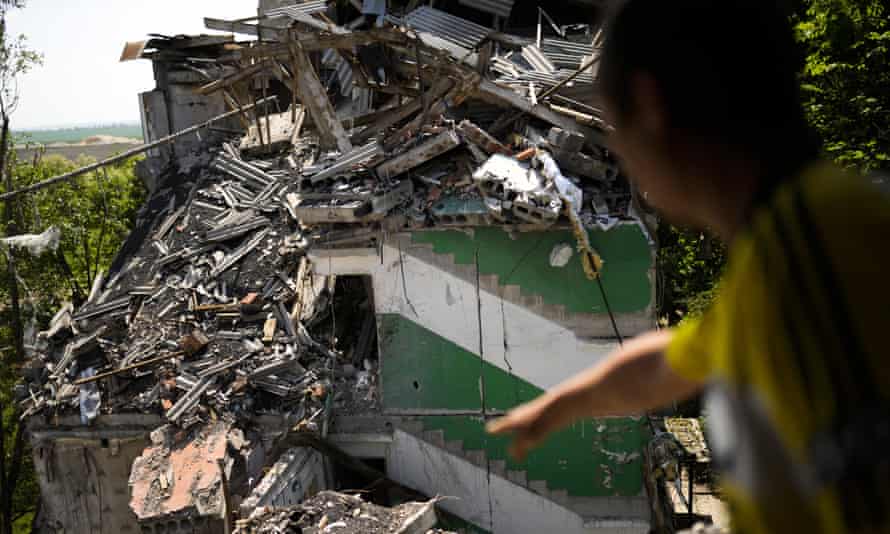
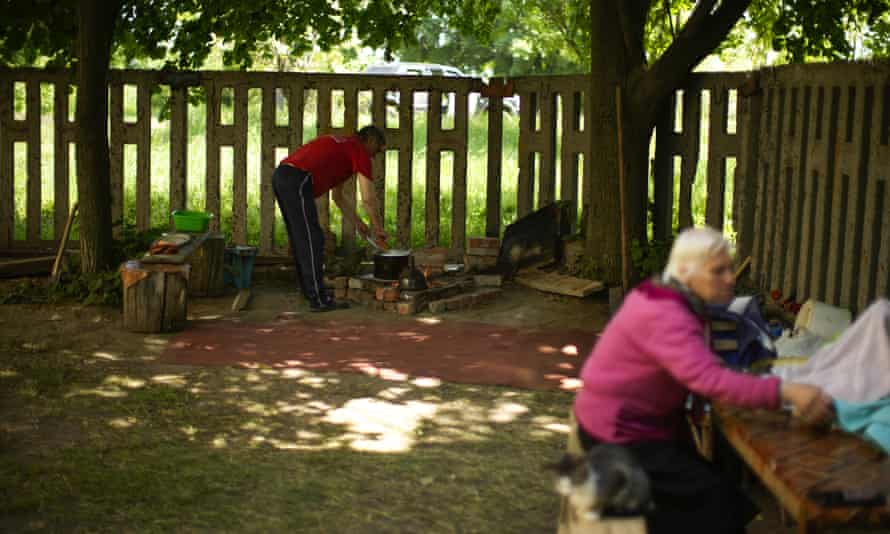
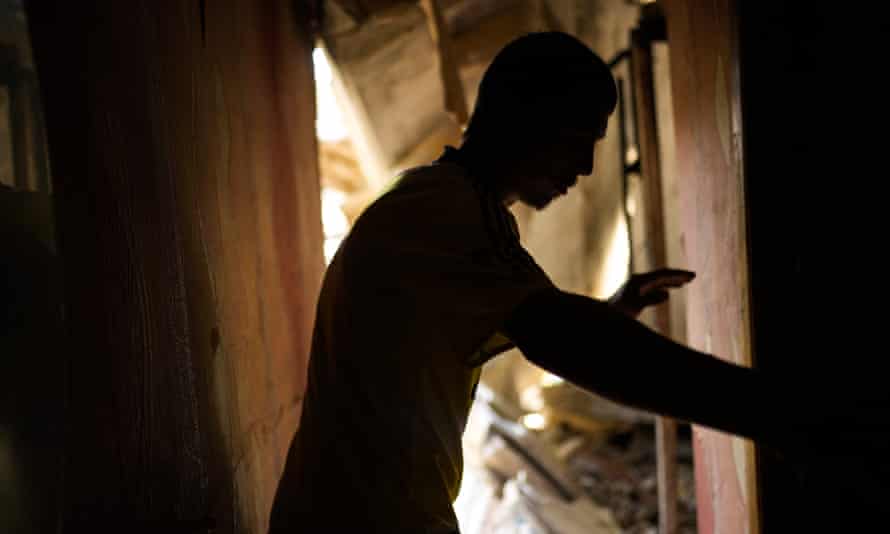
In addition to the phone call with Vladimir Putin today, Recep Tayyip Erdoğan, the president of Turkey, spoke with Volodymyr Zelenskiy on the phone, in which they discussed food security and sea ports.
Reuters is reporting that Erdoğan specifically told Zelenskiy that he placed value on a project to create a safe sea route for exporting Ukrainian agricultural goods. “Erdoğan stated that he especially valued the project to create a secure sea route for exporting Ukrainian agricultural products,” his office said in a statement and added he welcomed, in principle, the idea of making Istanbul a headquarters for an “observation mechanism” between Moscow, Kyiv and the United Nations.
Continued dialogue with 🇹🇷 President @RTErdogan. Discussed threats to food security posed by the aggressor & ways to unblock 🇺🇦 ports. Held discussions on cooperation in the security sphere. Unanimously agree on the need to restore peace. We appreciate 🇹🇷’s help in this process.
— Володимир Зеленський (@ZelenskyyUa) May 30, 2022
While Lysychansk and Sievierodonetsk in the Luhansk oblast sustained much of the Kremlin’s focus today, with Russian troops entering the outskirts of Sievierodonetsk, Kharkiv in the northeast also took quite a bit of hits.
Russian forces occupy about 31% of the Kharkiv region’s territory is occupied by Russian forces, but Ukrainian defenders have liberated about 5%, the head of the Kharkiv regional military administration said. “We are not yet able to fully inspect some of the liberated settlements, conduct full-fledged de-mining and begin rebuilding critical infrastructure, as shelling continues. Where we can do it remotely, we do it,” Oleg Synegubov said earlier.
Kharkiv shelled again: a teenager and two more people injured
— Iuliia Mendel (@IuliiaMendel) May 30, 2022
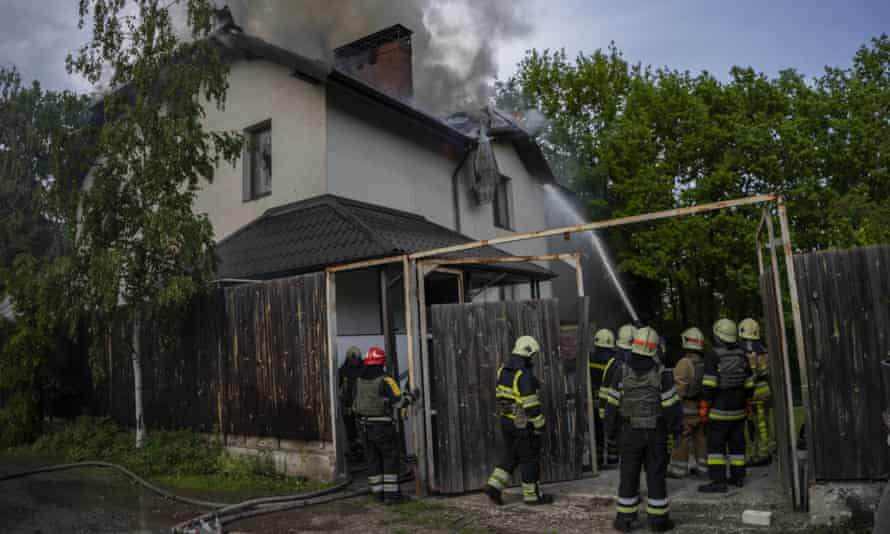
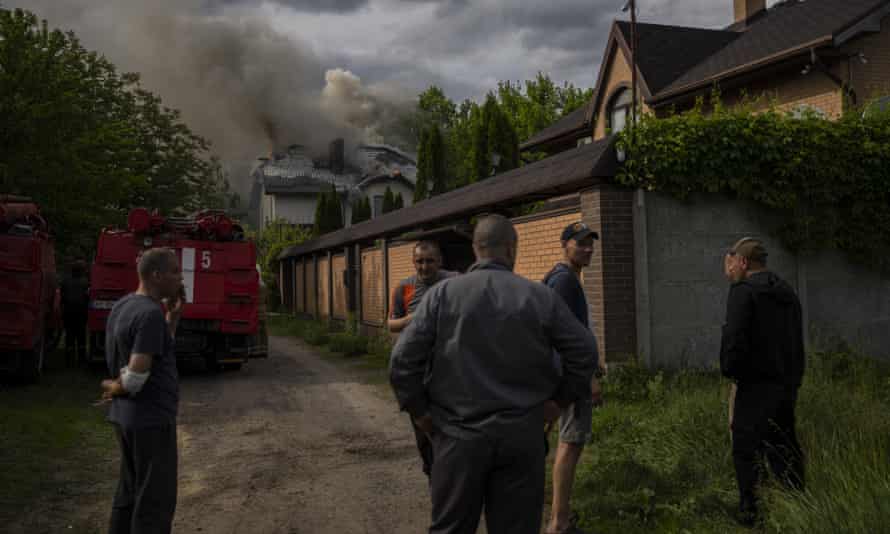
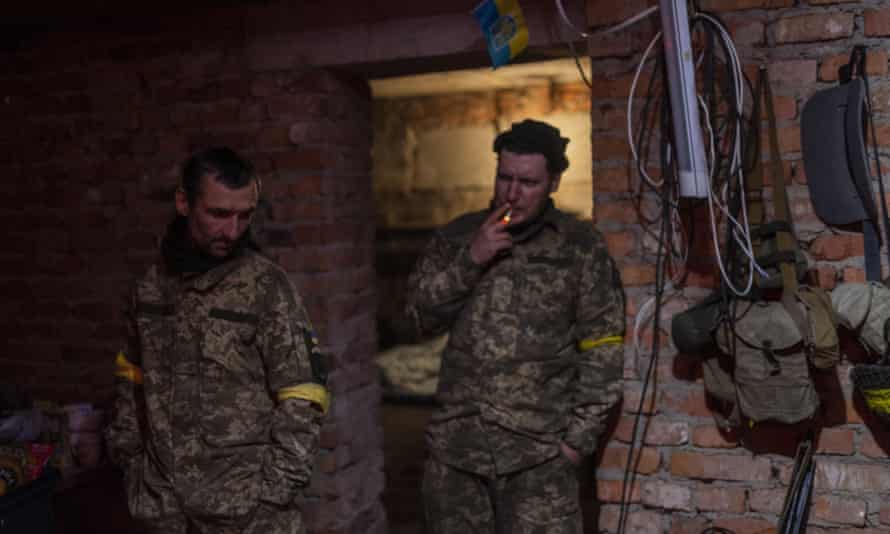
Vladimir Putin signed a decree simplifying the process of attaining Russian citizenship for Ukrainian children who are either orphaned or currently without parental care, particularly in the partially occupied territories in the Donbas:
Is not it a version of kidnapping?
vladimir putin signed a decree on the simplification of turning into russian citizenship for Ukrainian orphaned children without parental care, especially in the partially occupied territories.— Iuliia Mendel (@IuliiaMendel) May 30, 2022
Putin ordered to simplify the process of attaining citizenship for kids without parental care who are from #Ukraine, or the so-called republics in occupied Donbas. Ukrainian authorities say Russia already deported around 2,000 orphans to the territories it controls pic.twitter.com/yfp1DFX8s2
— Anastasiia Lapatina (@lapatina_) May 30, 2022
Lysychansk is one of two cities that was hit hard today in the Luhansk oblast of Ukraine – the bombing of the other city, Sievierodonetsk, is so intense that the casualties cannot be assessed.
Here are some scenes from Lysychansk today:
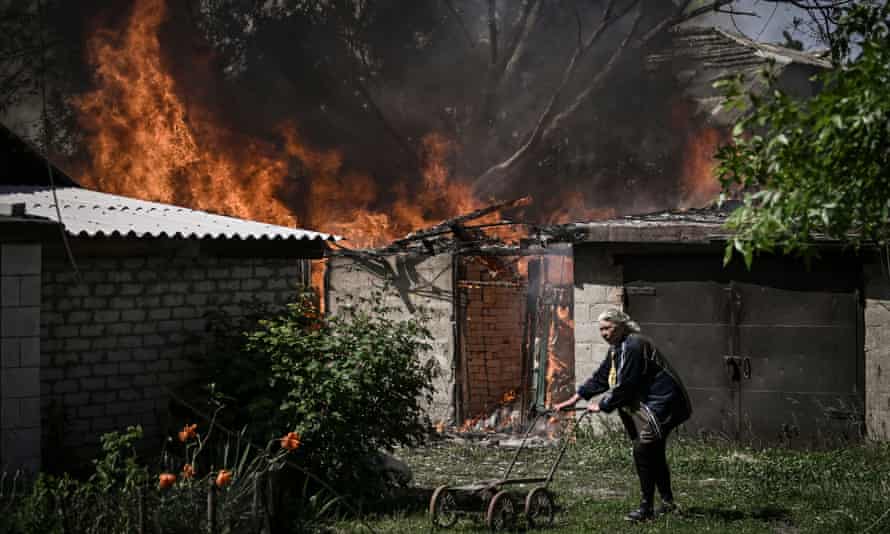
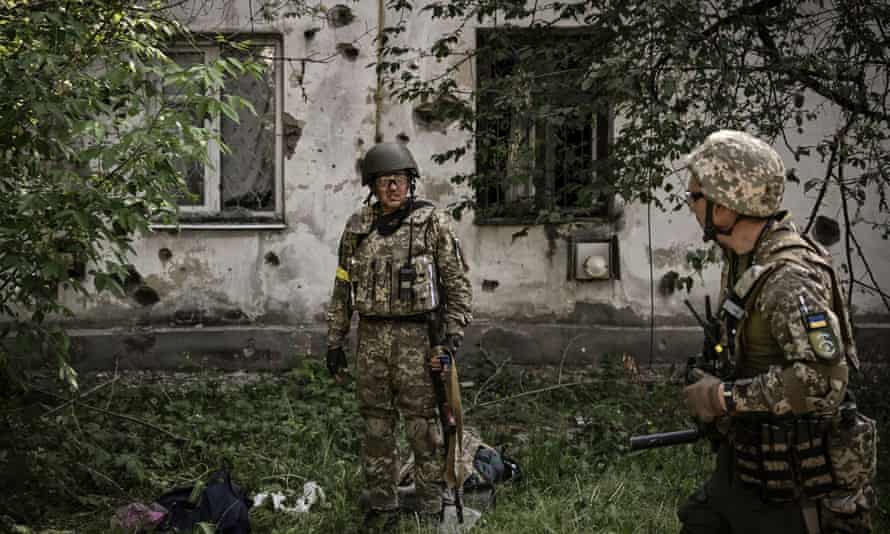
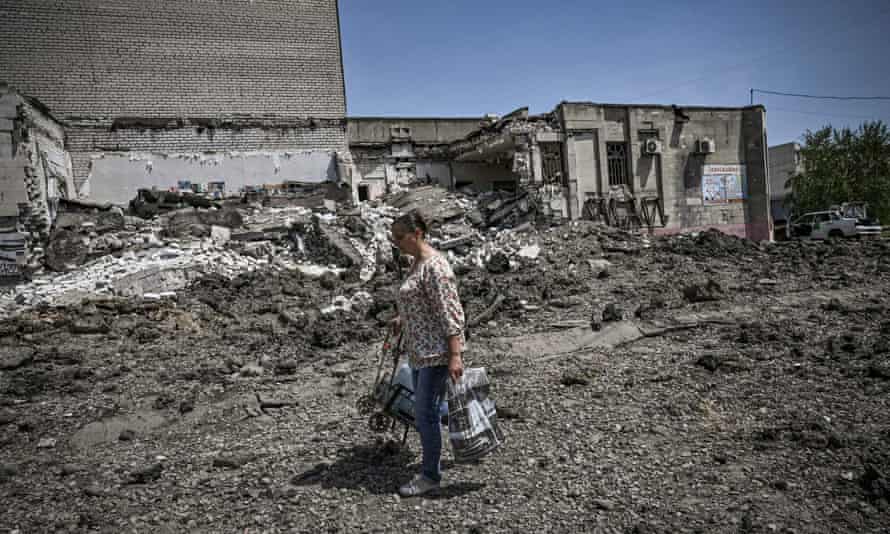
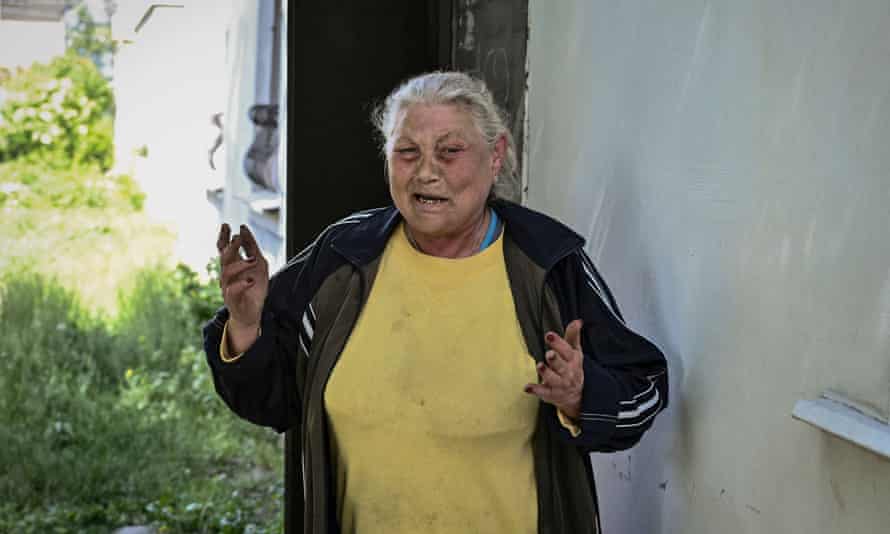
Boris Yeltsin’s son-in-law quits as unpaid Putin adviser
Valentin Yumashev, the son-in-law of the former Russian president Boris Yeltsin, quit his role as unpaid adviser to Vladimir Putin last month, Reuters is reporting.
Though the Kremlin spokesman Dmitry Peskov and Yumashev did not immediately respond to a request for comment, Lyudmila Telen, first deputy executive director of the Boris Yeltsin Presidential Center, told Reuters that Yumashev had given up his Kremlin adviser role in April.
“It was his initiative,” she said, when asked why he left the position. Another person, who spoke to Reuters on the condition of anonymity, also confirmed that Yumashev had quit in April.
Yumashev, who is married to Yeltsin’s daughter, Tatyana, represented one of the few remaining links in Putin’s administration to Yeltsin’s rule – a period of liberal reforms and an opening-up of Russia towards the west. However, insiders said he did not play a major role as Putin’s adviser.
Under Yeltsin, who was president from 1991 to 1999, Yumashev also served as a Kremlin adviser and later as head of the presidential administration.
Summary
- Russia is considering paying Eurobond holders by applying the mechanism it uses to process payments for its gas in roubles. The scheme would allow Moscow to pay bondholders while bypassing western payment infrastructure. Investors, however, said the move would not enable Russia to avoid a historic default on debt.
- In talks with the Turkish president, Recep Tayyip Erdoğan, the Russian president, Vladimir Putin, said if sanctions were lifted, then Russia could “export significant volumes of fertilisers and agricultural products”.
- The new US ambassador to Ukraine has arrived in Kyiv, the Guardian understands, a symbolic move after the US withdrew all diplomats from the country before the Russian invasion in February.
- EU leaders failed to agree on a Russian oil import ban before the two-day summit in Brussels. While the leaders of the 27 countries will agree in principle to an oil embargo, the details of their draft conclusions are yet to be decided.
- Russia will stop supplying gas to the Netherlands as of tomorrow after the government-backed trader GasTerra refused to pay supplier Gazprom in roubles. About 44% of Dutch energy usage is based on gas, but only about 15% of Dutch gas comes from Russia, according to government figures.
- A French journalist, Frédéric Leclerc-Imhoff, was killed after an evacuation car was hit near the Ukrainian city of Sievierodonetsk. The French president, Emmanuel Macron, said: “I share the pain of the family, relatives and colleagues of Frédéric Leclerc-Imhoff, to whom I send my condolences.”
- Russian troops entered the outskirts of the Ukrainian city of Sievierodonetsk. The regional governor, Serhiy Gaidai, has described the fighting as “very fierce”.
- The US president, Joe Biden, has said the US will not send Ukraine rocket systems that can reach into Russia. The comments followed reports that the Biden administration was preparing to send advanced long-range rocket systems to Kyiv.
That is it from me, Geneva Abdul. I am handing you on to Vivian Ho.
The European Union is edging towards a partial ban on Russian oil, as leaders attempt to find a compromise to placate the Hungarian prime minister, Viktor Orbán, who has been holding up a deal on the latest sanctions against Russia.
Arriving at the leaders’ summit, Orbán said ‘the pipeline solution is not bad’ but insisted his country needed guarantees that it could obtain oil from other sources if there was an ‘accident’ at the Druzhba pipeline, which runs through war-torn Ukraine.
Watch Orbán here:
Russia is considering paying Eurobond holders by applying the mechanism it uses to process payments for its gas in roubles, Reuters reports.
The scheme, according to Reuters, would allow Moscow to pay bondholders while bypassing western payment infrastructure. Investors, however, said the move would not enable Russia to avoid a historic default on debt.
The news comes days after the US decided against extending a license that had permitted creditors to receive bond payments while enabling Russia to dodge default.
The Russian, finance minister, Anton Siluanov, said:
As happens with paying for gas in roubles: we are credited with foreign currency, here it is exchanged for roubles on behalf of [the gas buyer], and this is how the payment takes place. The Eurobond settlement mechanism will operate in the same manner, only in the other direction.
According to Reuters, the money would be channelled through Russia’s National Settlement Depository (NSD), which, unlike many Russian financial institutions, is not under western sanctions.
A financial market source told Reuters Russia planned to present the scheme to investors before its next payments, on two bonds, due on 23 June.
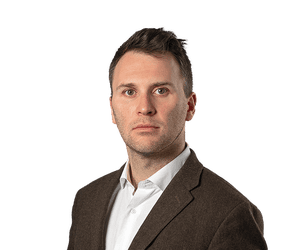
Andrew Roth
The rumours have spanned the gamut: Vladimir Putin is suffering from cancer or Parkinson’s disease, say unconfirmed and unverifiable reports; the Russian leader has survived a coup attempt; or, as some tabloids think, he is already dead and has been replaced by a body double.
Photographs of Putin meeting top aides are inspected in microscopic detail: is he gripping the table in pain during a meeting with the defence minister, Sergei Shoigu, in late April? Is his puffy face a sign of steroid use, as the former foreign secretary Lord Owen claimed in March?
As Russia’s war in Ukraine enters its fourth month, reports suggest that Russia’s leader may be ill. But that may be just wishful thinking for Putin’s many critics, who appear ready to embrace conspiracy theories of divine vengeance or palace coups for his unrelenting assault in Ukraine.
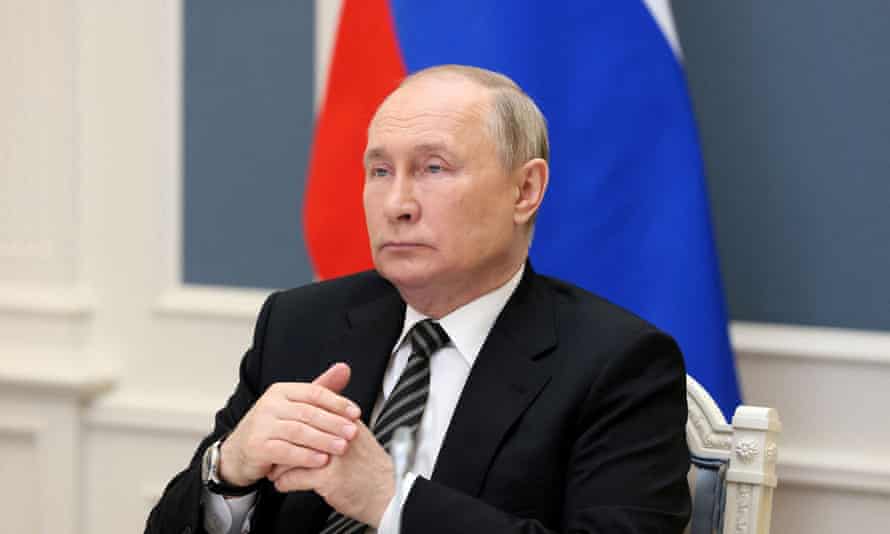
Photograph: SPUTNIK/Reuters
You can read the whole piece here:
Russia ready to facilitate export of grain from Ukrainian ports in coordination with Turkey
In talks with the Turkish president, Recep Tayyip Erdoğan, the Russian president, Vladimir Putin, said Russia was ready to facilitate the unhindered export of grain from Ukrainian ports, according to Reuters.
The Kremlin said of Putin’s call with Erdoğan:
During the discussion of the situation in Ukraine, emphasis was placed on ensuring safe navigation in the Black and Azov seas and eliminating the mine threat in their waters. Vladimir Putin noted the readiness of the Russian side to facilitate the unhindered sea transit of goods in coordination with Turkish partners. This also applies to the export of grain from Ukrainian ports.
Putin added, according to Reuters, that if sanctions were lifted, then Russia could “export significant volumes of fertilisers and agricultural products”.
Silos and ports across Ukraine are brimming with more than 20m metric tonnes of grain and corn that has nowhere to go, with Russia blockading the country’s Black Sea coast and the exit routes for Ukraine’s grain.
Ukraine used to export most of its goods through seaports but since Russia invaded the country, it has been forced to export by train or via its small Danube River ports.
As a result, global wheat prices leaped by 20% in March, owing to the direct impact of the war on wheat production, with the world facing a worsening state of food insecurity and malnutrition, at a time when 42 million people were already one step away from famine.
Ukraine is fed up with “special solutions” and separate models for its integration into the European Union, the country’s foreign minister, Dmytro Kuleba, said on Monday, Reuters reports.
After a meeting with France’s foreign minister, Catherine Colonna, in Kyiv, he said:
We need a clear legal affirmation that Ukraine is a part of the European integration project, and such an affirmation would be the granting of candidate status.
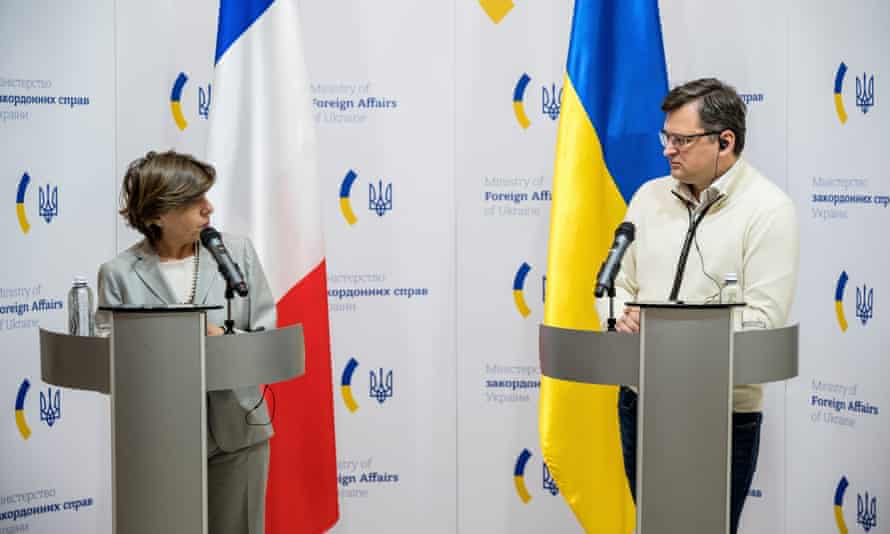
New US ambassador to Ukraine, Bridget Brink, arrives in Kyiv in symbolic move

Shaun Walker
The new US ambassador to Ukraine has arrived in Kyiv, the Guardian understands, a symbolic move after the US withdrew all diplomats from the country before the Russian invasion in February.
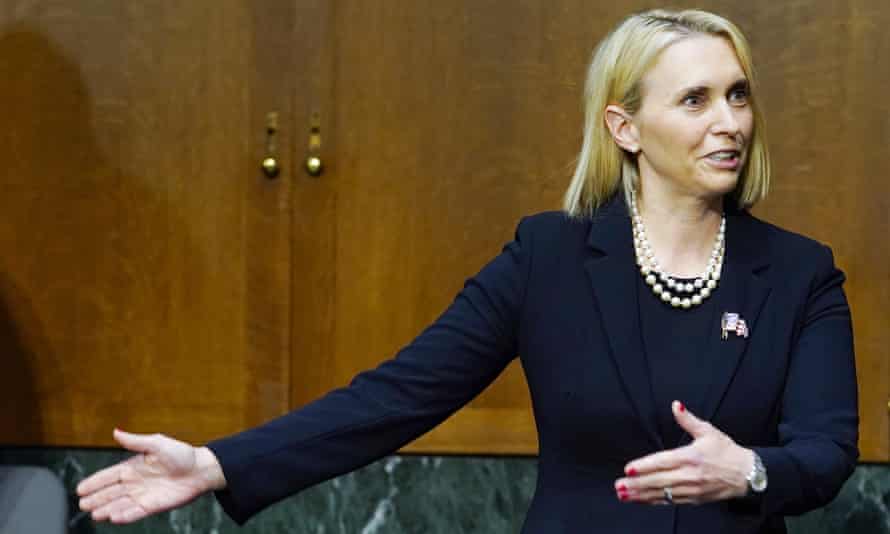
A career diplomat who served as US ambassador to Slovakia until recently, Bridget Brink was nominated by President Joe Biden in late April and confirmed unanimously by the US Senate on 18 May.
The state department has not yet officially announced Brink’s arrival in Kyiv but it was confirmed by her biography page on the US embassy website, which notes that she arrived in the city on 29 May.
Read more here:
Summary
It’s approaching 7pm in Ukraine. Here are some of the latest developments:
- EU leaders have failed to agree on a Russian oil import ban before the two-day summit gets underway in Brussels. While the leaders of the 27 countries will agree in principle to an oil embargo, the details of their draft conclusions are yet to be decided.
- Russia will stop supplying gas to the Netherlands as of tomorrow after the government-backed trader GasTerra refused to pay supplier Gazprom in roubles. About 44% of Dutch energy usage is based on gas, but only about 15% of Dutch gas comes from Russia, according to government figures.
- A French journalist, Frédéric Leclerc-Imhoff, was killed after an evacuation car was hit near the Ukrainian city of Sievierodonetsk. The French president, Emmanuel Macron, said: “I share the pain of the family, relatives and colleagues of Frédéric Leclerc-Imhoff, to whom I send my condolences.”
- Russian troops have entered the outskirts of the Ukrainian city of Sievierodonetsk. The regional governor, Serhiy Gaidai, has described the fighting as “very fierce”. Gaidai has also appeared on national television in Ukraine to say: “Unfortunately we have disappointing news, the enemy is moving into the city.”
- Ukrainian soldiers captured by Russian forces after the three-month siege of the Azovstal steel plant may face the death penalty, AFP reports. At least 1,000 Ukrainian fighters, including members of the Azov battalion, were transferred to Russian-held territory more than a week ago.
- The US president, Joe Biden, has said the US will not send Ukraine rocket systems that can reach into Russia. The comments followed reports that the Biden administration was preparing to send advanced long-range rocket systems to Kyiv.
- Ukraine’s former president Petro Poroshenko, who faces treason charges, has been allowed to leave the country to attend a political meeting. Poroshenko, the owner of the Roshen confectionery empire and one of Ukraine’s richest businesspeople, is being investigated for his alleged involvement in financing of Russian-backed separatists in 2014-15.
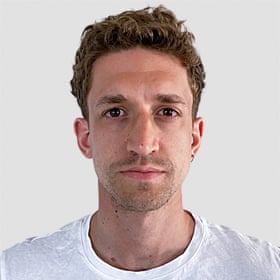
Pjotr Sauer
Russia will cut off gas supplies to the Netherlands on Tuesday, the Dutch-backed trader GasTerra said on Monday after the company refused to pay supplier Gazprom in roubles, in the latest escalation of the energy payments row with the west.
Gazprom Export has demanded that European countries pay for Russian gas supplies in roubles because of sanctions imposed over Moscow’s invasion of Ukraine. Gazprom had already cut off gas to Finland, Poland and Bulgaria after they refused to comply with the new payment terms.
GasTerra, which buys and trades gas on behalf of the Dutch government, said in a statement that it had “anticipated” Russia’s moves to cut off gas and has bought “elsewhere” some of the 2 billion cubic metres of gas it had expected to receive from Gazprom through October.
Around 44% of Dutch energy usage is based on gas, but only about 15% of Dutch gas comes from Russia, according to government figures. The Dutch government earlier announced the country’s plans to stop using Russian fossil fuels by the end of the year.
European nations are divided over how to respond to Moscow’s demand that all payments for the gas should be made in the local currency. Germany and Italy have reportedly told their companies they could open rouble accounts to keep buying Russian gas without breaching sanctions.

